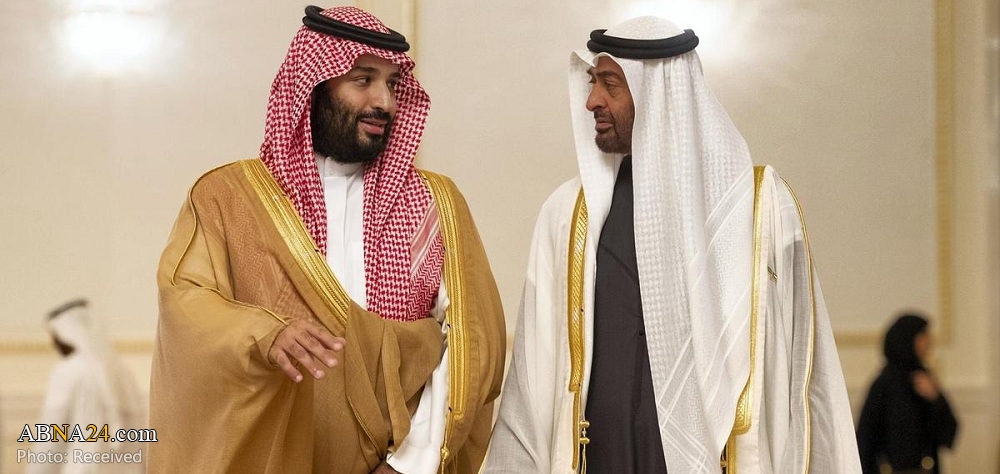AhlulBayt News Agency (ABNA): On Tuesday, the US President Donald Trump announced a Washington-brokered normalization deal between the Israeli regime and the UAE.
The agreement drew massive reactions regionally and globally. However, Saudi Arabia mysteriously remained silent on the move by refraining from taking any official position. This comes while over the past years, Saudi officials implicitly have expressed their willingness to publicize their secret unofficial relations with Tel Aviv.
On the other side, the UAE is a member of the (Persian) Gulf Cooperation Council in which the important foreign policy decisions of one member takes the attention and reaction of other members and sometimes the independent policy of the members, like what Qatar did, cannot be tolerated by the other member states.
Furthermore, Washington under Trump, for securing full support of Israeli powerful lobbies inside the US, pushes with the Arab-Israeli normalization case. This means that Saudi Arabia is already under pressure of the White House to voice its advocacy to the Abu Dhabi-Tel Aviv thaw. At least up to the moment, the Saudis have chosen to turn a blind eye. But why do they remain silent?
Bin Salman’s conservatism ahead of assuming the crown
A leading theory about silence adopted by Riyadh and even show of passiveness concerning the US-mediated normalization deal is that the Saudi Crown Prince Mohammed bin Salman is choosing not to react because of his shaky foundation on top of the power in the Arab kingdom.
As King Salman's death seemingly is close, Crown Prince Mohammed finds his position fragile due to his radical policies at home—including the adoption of anti-religious policies, cracking down on civil activists, and arresting his potential challengers— and in the region and beyond it— like the costly and devastating Yemen war, Qatar blockade, and Syria and Libya intervention.
Fearing his unpredictable and aggressively ambitious character, bin Salman's royal opponents are now enlarging in numbers. The oil slump, Yemen war costs, and the economic strains the ordinary Saudis are suffering from are overshadowing the support he expects from the younger generations.
At the same time, Western support to him is declining, and in some cases Western powers stand in line with his opponents. Ongoing war in Yemen, the clampdown on the civil activists, assassination of his critic Jamal Khashoggi at the Saudi consulate in Istanbul, and the lobbying clout his opponents have in the Western countries make him aware of the risks of endorsement of the Emirati-Israeli deal. He is afraid that publicized support will infuriate especially his religious detractors and this is what he finds costly. Muslim Brotherhood is his key opponents who are lying in ambush and waiting for another slip-up from the naïve crown prince. Should the Saudi foreign policy traced back, it can be found that steps for closeness to the Israeli regime were taken in the early months of bin Salman’s assumption of power. As time went by, the de facto ruler tasked Bahrain with managing the normalization case while he stood behind.
Weighing up the conditions and developments
Another theory associated with Riyadh’s silence about the normalization accord is that the kingdom is following the reactions and developments that come after the deal to set an appropriate time for giving out its word. As was above-mentioned, Saudi Arabia for some time has been following the normalization plans by giving a proxy role to subservient Bahrain. Bin Salman is seeking a strategic partnership with the Israelis and Western Jewish circles both to gain the White House support for his crown assumption and also to build a coalition against Iran and the Axis of Resistance especially when it comes to Yemen.
Under this theory, the UAE plays as a line breaker and a test piece and if no massive outcry is raised across the Persian Gulf Arab states, other members like Saudi Arabia can disclose their secret relations with Tel Aviv.
Riyadh checkmated
Yet there is a third and highly likely theory why Riyadh rulers kept silent so far to the Israeli-Emirati agreement. Definitely, Saudi Arabia and the UAE in the past years and under Mohammed bin Salman and Mohammed bin Zayed tried to demonstrate themselves as two strategic allies in the region in the Cooperation Council. Their coalition in the anti-Yemeni war and their cooperation to squeeze Qatar in 2017 was the climactic point of this alliance. But Yemen war developments showed that bin Zayed with guile managed to abuse bin Salman in service of the Emirati interests. Even worse, the UAE showed it was planning to seize the leadership from Saudi Arabia in the (P) GCC, regional equations, and the Arab world.
So, the UAE’s taking the risk of pioneering the Arab world normalization with the Israeli regime intended to display the shift of the leadership in the Arab world and the Cooperation Council, something Abu Dhabi has been dreaming of for years. Riyadh knows that if it endorses the normalization deal, it very well provides water to the rival’s mill.
/129

